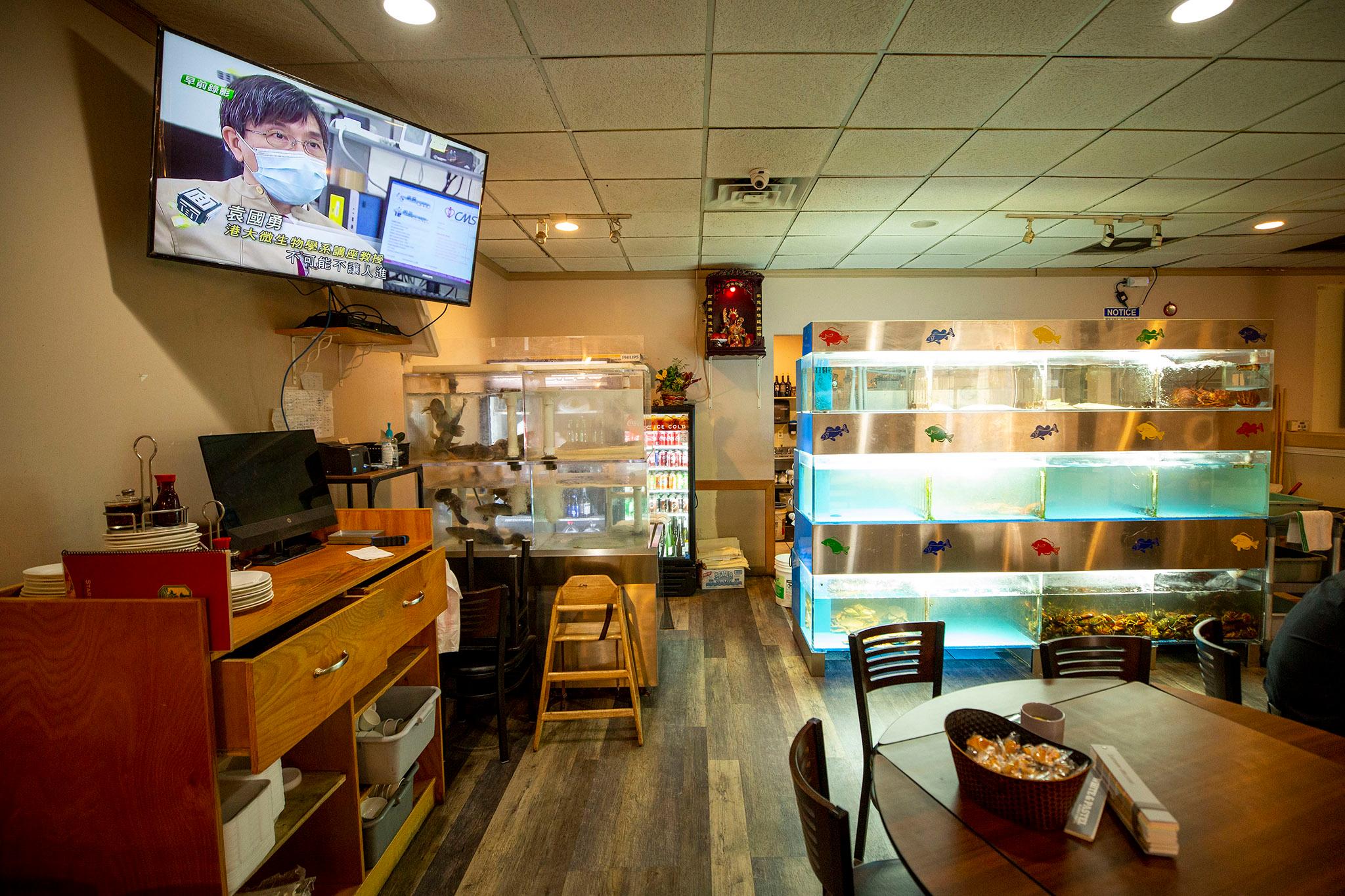By Gigi Sukin, for Denverite
Denver's bars and restaurants spent the last few weeks strained to keep a steady flow of business as concerns and chaos mounted surrounding the novel coronavirus pandemic.
But Denver Mayor Michael Hancock's Monday order to shutter the city's in-house dining operations starting at 8 a.m. today brought much of the service industry to a grinding halt.
"These are the steps we must take to reduce people's exposure to this virus," Hancock said at a news conference detailing Denver's response. The eight-week forced closure of area restaurants does allow for carryout, deliver and drive-thru services.
Gov. Jared Polis followed suit, announcing a 30-day statewide ban of on-site dining in an attempt to curb the virus.
"We are grateful that the governor is allowing delivery, take-out and drive-through service to continue, as this provides an essential option for Coloradans practicing social distancing, will help relieve strain on grocery stores, and will allow the businesses to generate some revenue and retain some staff to soften the blow," said Sonia Riggs, CEO of the Colorado Restaurant Association. Still, "It'll be crushing for employees. Even those operations that are able to stay open for takeout and delivery will likely have to trim some staff."
Riggs said last week "marked a noticeable shift" in the questions and concerns she and her team received from industry members. (We) were hearing from many restaurants that business was down between 20 and 50 percent, and up to 70 percent in some cases."
Survival quickly became the focus and mantra for the owners, operators and staffs of Denver's bars and restaurants.
Eateries including James Beard Award-nominated Annette, Avanti F&B and Broadway Market closed their doors preemptively, watching the mass closures in other U.S. cities.
"To be clear, none of our staff has fallen ill with the virus," Patrick O'Neill, Avanti's co-founder, said in a press release. "This decision is based on the severity of the situation and a feeling of obligation to do what we can for the community."
Already, some of the more painful and permanent impacts of the coronavirus have hit the sector locally. On Saturday, Jennifer Jasinski announced that one of her Crafted Concepts restaurants, Euclid Hall, would shutter within a matter of days.
"The cumulative effects of the COVID-19 virus on our business really gave us no choice but to close now," Jasinski wrote in a press release. "We will continue to explore a new location for Euclid Hall, a concept we all love and are confident in."
As of midday Monday, Wash Park's HOJA had cut two part-time workers. "Hopefully we can do enough takeout business to bring them back on board by the weekend," owner Ben Susnick said. "As for our (two) salaried workers -- we're a family business, and they are now part of the family. I'll close the restaurant before I let either of them go."
If the outbreak improves before May 11, Hancock suggested Denver restaurant owners and operators may be given notice to reopen. In the meantime, the mayor said city inspectors will be monitoring to ensure eateries comply.
"Our biggest goal was to help do our part to slow the spread of the coronavirus," said Bryan Palmer, chief storyteller with Aurora's Stanley Marketplace, which closed its doors to the public Saturday evening. "There was a lot of consensus around closing. Even though it's terrifying for a small-business owner," of which Stanley, a mixed-use development, houses more than 50. "For some of our businesses, they're worried about whether they're actually going to be able to reopen if this lasts."
Teams across town are quickly adapting their practices and service models to accommodate take-out and delivery options.
Stanley will launch a to-go program with 11 of its purveyors, including Denver Biscuit Co., Rolling Smoke BBQ, Maria Empanada and others. Still, the vantage point of the concept has changed for the time being.
"Our mission in life is to be a community gathering place," Palmer says of Stanley. "Telling people not to gather is antithetical to who we are."
Polis acknowledged the inevitable challenges restaurant workers will face ahead, and pointed to state assistance, including the Colorado Work-Share program, which provides an alternative to laying off employees by allowing them to continue working, but with fewer hours.
"(This) industry needs immediate and substantial financial relief at the local, state and federal levels," Riggs said.
Despite the impacts of the virus, some remain hopeful. "This is an industry of upbeat, optimistic, outgoing personalities," said Adam Schlagel, CEO of Cumulus Etc, a consulting company focused on food, beverage, agriculture and sustainability, with projects including Chook Charcoal Chicken, Sun Valley Public Market and Snooze an AM Eatery.
He said the city of Denver has so far been "incredibly responsive," throughout the unfolding events. But, Schlagel admitted, "there are so many unknown questions that I can't get angry yet."
For now, he said, "Every transaction, every opportunity we have to serve people -- is more vital and appreciated than ever."













